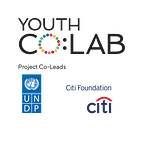YSE Series:
The Future of Work In Singapore–Reactor’s Journey
In order to achieve the SDG 8: Decent Work and Economic Growth, we need to provide youth with the best opportunities to transition to a decent job. This calls for investing in education and training of the highest possible quality and providing youth with skills that match labour market demands.
Young students around Asia Pacific are actively looking for ways to upskill themselves in order to be future-ready after graduation. We met Reactor to showcase how key stakeholders are contributing to the Singaporean workforce challenges.
Reactor School was founded with one purpose–to build a space for all students to grow, learn and create with each passing day. Through a unique teaching approach and a truly passionate staff, we help students develop academically and personally to the highest level.
We spoke to Rusydi Khairul, co-founder of Reactor School, an experienced professional in the social entrepreneurship space with over 6 years of growing and nurturing social entrepreneurs.
1. Tell me more about your social enterprise, what is the purpose of the organization and the gaps you are trying to fill?
Khairul: Reactor school is a startup school for students aged 14–24 to help them turn their projects into actual companies. We then go on to possibly invest in these companies and support them in their journey. Our main purpose of the company is to cultivate young founders to use tech for good as well as go on to help scale up the impact. We are currently working with over a hundred high schools and universities in the South-East Asian region
2. Run us through the journey–how it went from being an idea to a start-up to building it so far.
Khairul: I went into entrepreneurship accidentally when I discovered I really loved solving problems and helping people, and that the best way of doing this was by starting a company!
At the start, I had very strong imposter syndrome, and it took a long journey of self-discovery to discover what I really enjoyed. However, I can say the startup journey or social entrepreneurial journey is definitely not linear, and that it is very normal to meet many challenges and having to restart many times along the way as you try to figure out product-market fit.
3. Share with us your main thesis: what is the main soft skill students should be developing in order to be (and stay) relevant in the future of work?
Khairul: At Reactor, our main thesis is that not every student should be an entrepreneur, but every student should be entrepreneurial. This also gives them the ability to figure out the role that they want to be in the future.
4. What advice would you provide to budding young social entrepreneurs in Singapore?
Khairul: for many young Singaporeans, there may be a strong need to manage and meet your parent’s expectations, as well as always comparing yourself against your peers on another path. My advice would be to actively meet and network with people that are outside of your comfort zone and discover what their career journey was. This can be learning from different cultures and backgrounds or picking up an ASEAN language and working with friends around the region. This is the only way you can understand other people’s perspectives and generate true empathy.
My last advice will be to actively educate yourself by reading long-form and having clarity of thought, as well as to try to always be the youngest person in the room.
5. How does your entrepreneurship education program play a role in the bigger picture of the building a future proof workforce within the region?
Khairul: School teaches you causal reasoning which means that there is only one right answer but in fact, in real life, we use effectual reasoning which means there are many ways to get to your goal. Entrepreneurship education teaches you to live with a large level of uncertainty. A startup doesn’t know who their customers are, does not have a product nor does it have a validated business model. Once it has figured out all three, it is no longer considered a startup. These are skills that will follow students regardless of their chosen careers. From Rusydi’s expertise, we got meaningful pieces of advice for young people willing to take part in the social entrepreneurial journey.
In terms of the Future of Work, Rusydi has shared a key point: “not every student should be an entrepreneur, but every student should be entrepreneurial”. This means that they will be able to be better equipped with the ability to quickly find solutions in uncertain situations. This adaptability helps them achieve the key skills of the future workforce which are complex problem solving and cognitive flexibility.
Co-created in 2017 by the United Nations Development Programme (UNDP) and the Citi Foundation, Youth Co: Lab aims to establish a common agenda for countries in the Asia-Pacific region to empower and invest in youth so that they can accelerate the implementation of the Sustainable Development Goals (SDGs) through leadership, social innovation and entrepreneurship. To learn more about the Youth Co: Lab, visit: https://www.youthcolab.org/
This blog is part of our Youth Social Entrepreneurship (YSE) Series. Stay tuned as in our next few blogs, we will continue to showcase the Youth Social Entrepreneurship Ecosystem in Singapore, as well as address some of the main challenges and opportunities for the youth willing to take this journey or already on it.
About Youth Co:Lab
Co-created in 2017 by the United Nations Development Programme (UNDP) and the Citi Foundation, Youth Co:Lab aims to establish a common agenda for countries in the Asia-Pacific region to empower and invest in youth, so that they can accelerate the implementation of the Sustainable Development Goals (SDGs) through leadership, social innovation and entrepreneurship. To learn more about the Youth Co: Lab, visit: https://www.youthcolab.org/
